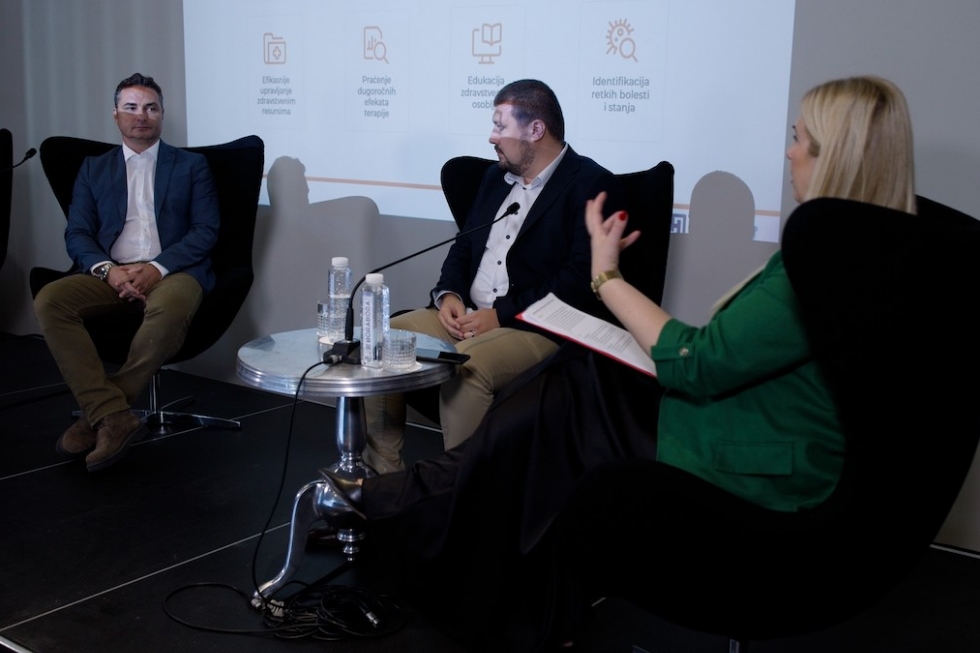The jubilee 20th conference for innovation in healthcare, entitled “Future is now”, was held today at the “Falkensteiner” Hotel in Belgrade. The conference, which is being held for the sixth time in Serbia, gathered leaders in the field of digital medicine from the region and Europe.
Apart from MD Bojan Trkulja, Director of the Association of Manufacturers of Innovative Medicines INOVIA, Filip Maljković, Head of the Development Team of the company “Heliant” also spoke at the panel dedicated to the improvement of the central information system in Serbia in the field of oncology.
MD Trkulja talked about the successes that had been achieved to date in terms of innovative therapies for oncological diseases and about the steps that had been made in this field in relation to other diseases. When asked how information systems supported work with oncology patients, Maljkovic pointed out that information systems in healthcare had made significant progress in the last 20 years and had reached wide application. One of them is prevention, which relies on clinical pathways that, according to the protocol, direct physicians to monitor certain indicators in order to better detect anomalies in patients and refer them further to a higher level of healthcare.
Additional assistance in diagnostics is provided by mobile applications developed by “Heliant” in cooperation with pharmaceutical companies and patient associations, such as “Open the Blue Circle”, an application for patients with diabetes and other applications designed for oncology patients. Machine learning and artificial intelligence are increasingly successfully applied for diagnostics globally, while in our country these methods are represented to a lesser extent. Also, at the global level, there are certain NLP (Natural Language Processing) initiatives, which involve the analysis of certain findings and opinions of doctors in order to make a diagnosis, which has only made its first steps in our region.

Another tool that provides guidance to doctors in terms of treatment are registries, in which information is stored for each patient and with which the course of the disease is monitored. “Unlike previous therapies that were prescribed to everyone without discrimination, we are now turning to precision medicine, and in order to get to it, we need data,” Maljković points out. MD Trkulja also spoke about precise and personalized medicine by citing examples of innovative therapies in the field of oncology.
In the next few years, it is expected that a central information system will be introduced and improved, which will be connected to local systems such as Heliant, but which will also be beneficial to other stakeholders in healthcare such as the National Health Insurance Fund, Batut, ALIMS, the Medical Chamber of Serbia and others, which will network the entire health system. Researchers will also benefit greatly from this, as they will be able to access a certain set of data and assess whether a drug is effective or whether a treatment is of good quality.
Discussions also addressed other trending topics, such as the availability of technology for patients with diabetes, the impact of decentralized incubation of blood cultures on time to results, as well as innovations in the diagnosis of sepsis.
A workshop on health technology assessment to address challenges and opportunities in healthcare decision-making was also held.
The “Future is Now” conference has become a leading place for the exchange of information on the digitization of healthcare and technological innovations in Central Europe, with 20 sessions in five countries to date.
Video: Mini-panel “Improvement of the central information system in Serbia related to oncology”
